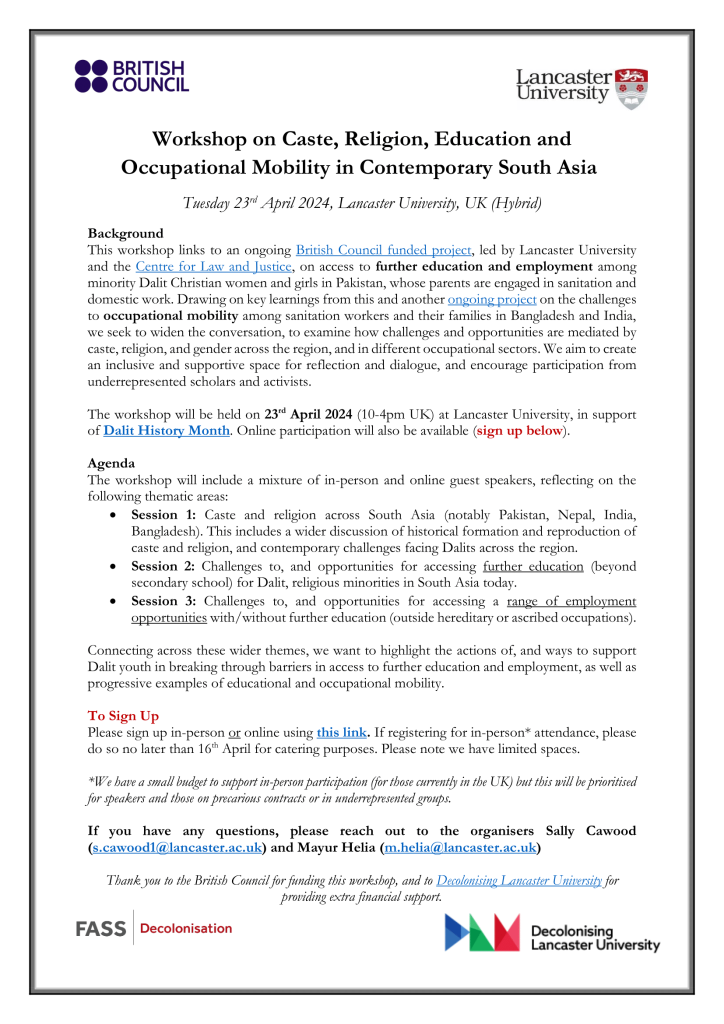
Workshop on Caste, Religion, Education and Occupational Mobility in Contemporary South Asia
Time: Tuesday 23r April 2024 (10-4pm UK)
Location: Hybrid – Online + Lancaster University
Open to the public, as well as university staff and students. Registration HERE.
Background
This workshop links to an ongoing British Council funded project, led by Lancaster University
and the Centre for Law and Justice, on access to further education and employment among
minority Dalit Christian women and girls in Pakistan, whose parents are engaged in sanitation and
domestic work. Drawing on key learnings from this and another ongoing project on the challenges
to occupational mobility among sanitation workers and their families in Bangladesh and India,
we seek to widen the conversation, to examine how challenges and opportunities are mediated by
caste, religion, and gender across the region, and in different occupational sectors. We aim to create
an inclusive and supportive space for reflection and dialogue, and encourage participation from
underrepresented scholars and activists.
Agenda
The workshop will include a mixture of in-person and online guest speakers, reflecting on the
following thematic areas:
• Session 1: Caste and religion across South Asia (notably Pakistan, Nepal, India,
Bangladesh). This includes a wider discussion of historical formation and reproduction of
caste and religion, and contemporary challenges facing Dalits across the region.
• Session 2: Challenges to, and opportunities for accessing further education (beyond
secondary school) for Dalit, religious minorities in South Asia today.
• Session 3: Challenges to, and opportunities for accessing a range of employment
opportunities with/without further education (outside hereditary or ascribed occupations).
Connecting across these wider themes, we want to highlight the actions of, and ways to support
Dalit youth in breaking through barriers in access to further education and employment, as well as
progressive examples of educational and occupational mobility.